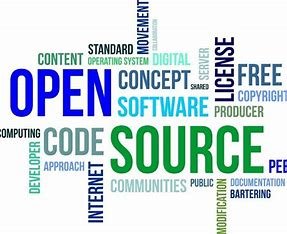Introduction
In the ever-evolving landscape of technology, the open-source movement has emerged as a powerful force, revolutionizing the way software is developed, distributed, and used. Open source software has become a driving force behind innovation, providing a collaborative platform that empowers developers and users alike. In this article, we will delve into the significance of open source and explore how it has positively impacted the technology industry and beyond.
Understanding Open-Source
At its core, open source refers to software whose source code is made freely available for anyone to view, modify, and distribute. This openness stands in stark contrast to proprietary software, where the source code remains hidden and controlled by a single entity. The philosophy of open source encourages community-driven collaboration, allowing developers from around the world to contribute to a project’s improvement and growth.
The Advantages of Open Source Software
1. Collaboration and Innovation
Open source software fosters a vibrant community of developers who collectively work towards enhancing the software. This collaborative model promotes innovation, as ideas are freely shared, leading to the development of cutting-edge features and solutions. The combined knowledge and expertise of a diverse group result in robust and reliable software.
2. Cost-effectiveness
One of the most significant advantages of open source software is its cost-effectiveness. As the source code is freely accessible, users can download and use the software without incurring licensing fees. This accessibility makes open source a preferred choice, especially for small businesses and startups with limited budgets.
3. Transparency and Security
Transparency is a core principle of open source. Since the source code is open for scrutiny, any potential vulnerabilities can be quickly identified and fixed by the community. This transparent approach to security ensures that issues are addressed promptly, leading to more secure software.
4. Customization and Flexibility
Open source software offers unparalleled customization and flexibility. Users can modify the source code to tailor the software to their specific needs. This level of adaptability is particularly beneficial for businesses with unique requirements, allowing them to create bespoke solutions that align perfectly with their operations.
5. Long-term Sustainability
The collaborative nature of open source projects contributes to their long-term sustainability. When a community is actively involved in a project, it is less likely to be abandoned or discontinued. Users can rely on continuous support and updates, ensuring the software remains relevant and functional for years to come.
Empowering Developers through Open Source
The open source movement has had a profound impact on developers worldwide. It has democratized the world of software development, breaking down barriers to entry and enabling aspiring programmers to participate in meaningful projects. Here are some key ways open source empowers developers:
1. Skill Enhancement
By contributing to open source projects, developers can enhance their skills and gain practical experience. They can work on real-world problems, collaborate with experienced developers, and learn best practices, which significantly boosts their expertise.
2. Building a Portfolio
For developers starting their careers, contributing to open source projects offers an excellent way to build a portfolio. Employers often value contributions to reputable open source projects as evidence of a developer’s capabilities and commitment to the craft.
3. Networking Opportunities
The open source community provides a vast network of like-minded individuals who share a passion for technology. Developers can connect with experts, mentors, and potential employers, creating valuable networking opportunities.
4. Giving Back to the Community
Many developers find great satisfaction in giving back to the community by contributing to open source projects. This altruistic aspect of open source fosters a sense of camaraderie and encourages developers to help each other grow.
Open Source and the User Experience
Beyond developers, open source software has a profound impact on end-users as well. It offers a host of benefits that contribute to an improved user experience:
1. Greater User Control
Open source software empowers users with greater control over their digital tools. They can customize the software to suit their preferences, ensuring a more personalized and enjoyable experience.
2. Continuous Improvements
The collaborative nature of open source leads to continuous improvements and updates. Users can enjoy the latest features and bug fixes, creating a smoother and more efficient user experience.
3. Community Support
Open source projects often have active and engaged communities that offer support and assistance to users. This strong support network ensures that users can seek help when needed, improving their overall experience with the software.
4. Ethical Considerations
For users concerned about data privacy and ethical considerations, open source software provides greater transparency. Users can review the code to ensure that the software aligns with their values and doesn’t compromise their privacy.
Conclusion
Open-source software has become an indispensable part of the modern technological landscape. Its collaborative and transparent nature fosters innovation, cost-effectiveness, and security. For developers, open source empowers skill development, networking, and community engagement. Meanwhile, users benefit from enhanced control, continuous improvements, and robust community support. As the open source movement continues to grow, it will undoubtedly shape the future of technology, driving positive change and empowering both developers and users alike.
FAQs
Q: Is open source software always free to use?
A: Yes, open source software is typically available for free, allowing users to download and use it without licensing costs.
Q: Can anyone contribute to open source projects?
A: Yes, open source projects welcome contributions from developers worldwide, regardless of their level of expertise.
Q: Is open source software less secure than proprietary software?
A: No, open source software benefits from community scrutiny, which often leads to quicker identification and resolution of security issues.
Q: Can businesses use open source software for commercial purposes?
A: Yes, businesses can use open source software for commercial purposes, as long as they comply with the relevant open source licenses.
Q: How can I get started with contributing to open source projects?
A: To get started, you can explore popular open source repositories on platforms like GitHub and begin by fixing minor bugs or adding new features to existing projects.





